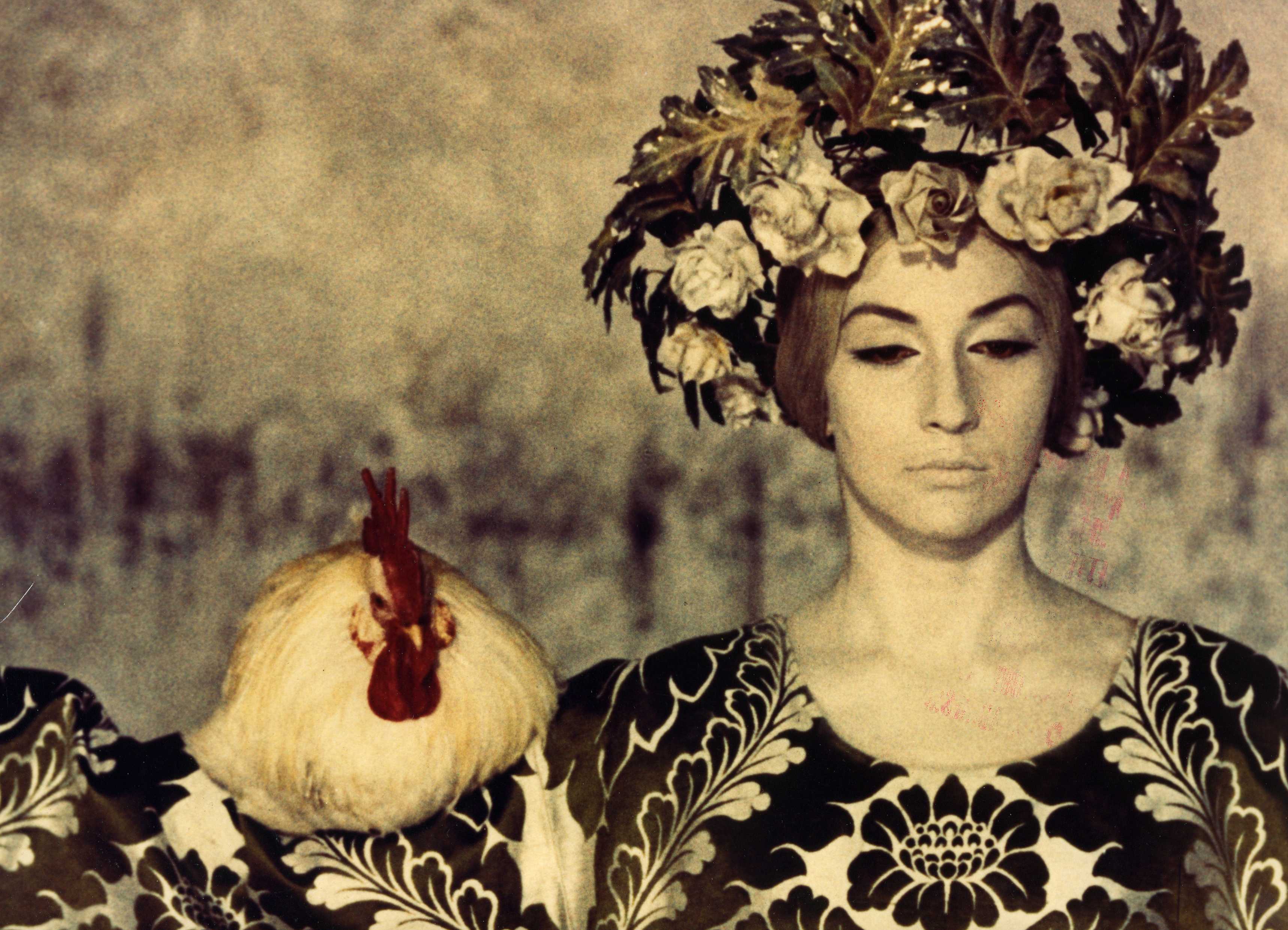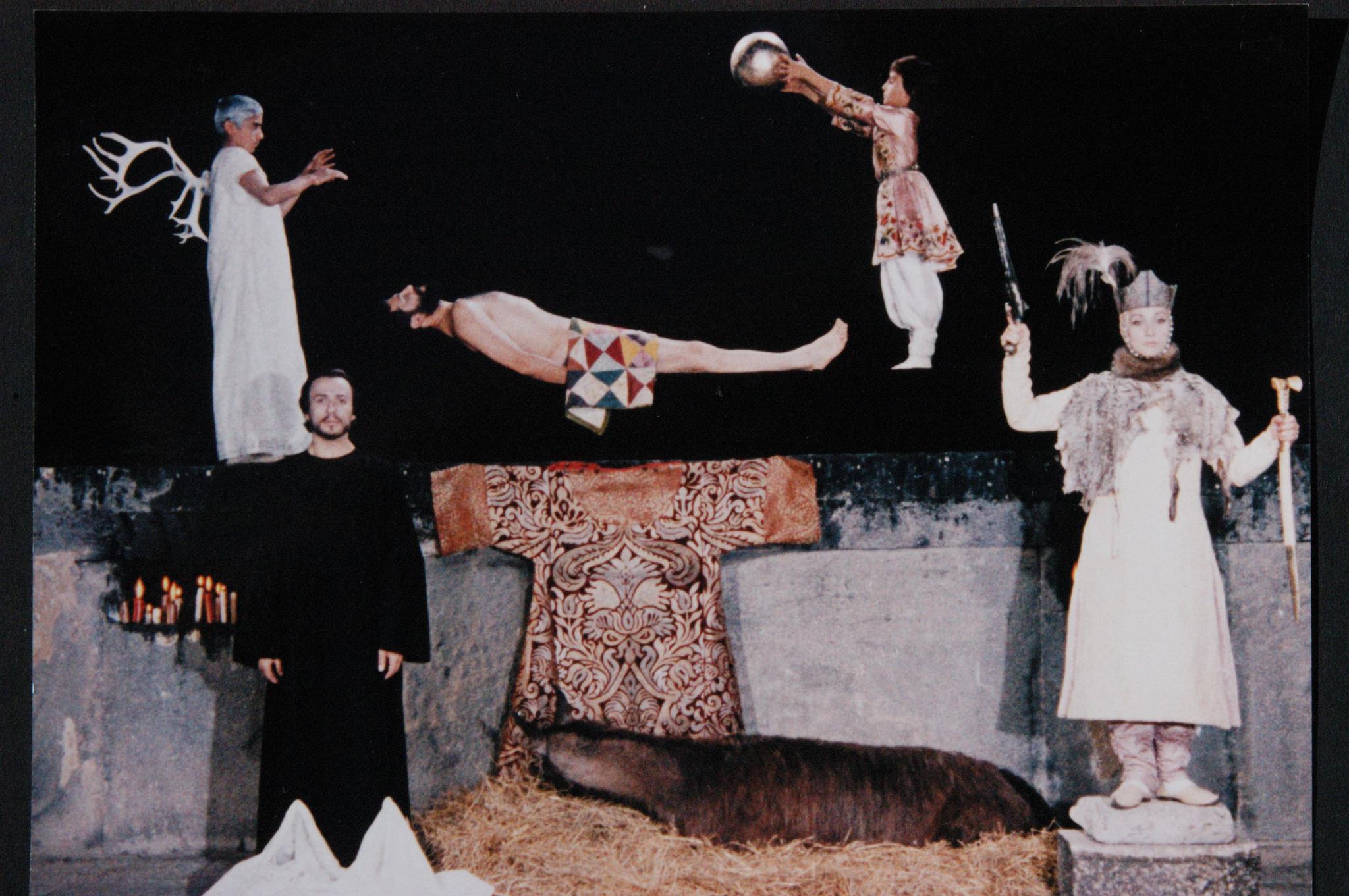The Color of Pomegranates is a deeply original masterpiece, which is the extreme expression of Sergei Parajanov's eccentric artistic vision. A historical and mystical mosaic of the life, work and inner world of the 18th-century Armenian poet Aruthin Sayadin, known as Sayat Nova ("King of Song"), the film presents a succession of metaphorical images, depicting in turn childhood, youth, love, faith and death, a surrealist vision set against a traditional and deeply religious backdrop.
Essential to the understanding of the movie is the symbolism of the pomegranate, which is associated with wealth, refinement, fecundity and love. In Islamic tradition, the gardens of heaven are filled with pomegranates. In the writings of Persian poets, the pomegranate depicts the undeniable beauty of the beloved. Other ancient peoples believed the pomegranate to be the fruit of knowledge, which Eve had bitten into in heaven, or the fruit of longevity and immortality. Thus, using these motifs, Paradjanov constructs (not only in "Sayat Nova", but also in later films) a whole network of nuanced meanings, transformed into a leitmotiv. The film is a visual-poetic rather than a literal biography of the life of the Armenian troubadour Sayat Nova, presented in the form of chapters focusing on different moments in his life.
The film was restored in 2014 by Cineteca di Bologna/L'Immagine Ritrovata and the Film Foundation's World Cinema Project, in association with the National Film Center of Armenia and Gosfilmofond of Russia. Restoration funding provided by Material World Charitable Foundation and The Film Foundation.




